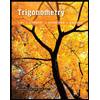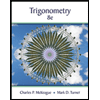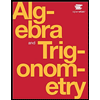The following figure shows a single-stage gear train. Gear trains are used in many products, such as clocks and automotive transmissions, to reduce or increase the angular velocity of a component. The size of each gear is measured by the number of teeth rather than the radius. Suppose the first gear has n, teeth and the second gear has n2 teeth. Gear 1 Gear 2 (1n1, @) (n2, w) Because the spacing of the teeth is the same for both gears, the ratio of their radii will be equivalent to the corresponding ratio of the number of teeth. When two gears are meshed together, they share the same linear velocity. If w, and w2 are the angular velocities of the first and second gears, respectively, then V2 = V1 r2@2 %3D @2 = r2 W2 = n2 The first gear in a single-stage gear train has 43 teeth and an angular velocity of 2 revolutions per second. The second gear has 11 teeth. Find the angular velocity of the second gear. (Round your answer to two decimal places.) 3.91 rad/sec © Cengage Learning
The following figure shows a single-stage gear train. Gear trains are used in many products, such as clocks and automotive transmissions, to reduce or increase the angular velocity of a component. The size of each gear is measured by the number of teeth rather than the radius. Suppose the first gear has n, teeth and the second gear has n2 teeth. Gear 1 Gear 2 (1n1, @) (n2, w) Because the spacing of the teeth is the same for both gears, the ratio of their radii will be equivalent to the corresponding ratio of the number of teeth. When two gears are meshed together, they share the same linear velocity. If w, and w2 are the angular velocities of the first and second gears, respectively, then V2 = V1 r2@2 %3D @2 = r2 W2 = n2 The first gear in a single-stage gear train has 43 teeth and an angular velocity of 2 revolutions per second. The second gear has 11 teeth. Find the angular velocity of the second gear. (Round your answer to two decimal places.) 3.91 rad/sec © Cengage Learning
Trigonometry (11th Edition)
11th Edition
ISBN:9780134217437
Author:Margaret L. Lial, John Hornsby, David I. Schneider, Callie Daniels
Publisher:Margaret L. Lial, John Hornsby, David I. Schneider, Callie Daniels
Chapter1: Trigonometric Functions
Section: Chapter Questions
Problem 1RE:
1. Give the measures of the complement and the supplement of an angle measuring 35°.
Related questions
Question
100%
I was originally given the answers 3.91, 7.82, and 32.27 and they all showed incorrect.

Transcribed Image Text:The following figure shows a single-stage gear train. Gear trains are used in many products, such as clocks and automotive transmissions, to
reduce or increase the angular velocity of a component. The size of each gear is measured by the number of teeth rather than the radius.
Suppose the first gear has n, teeth and the second gear has n2 teeth.
Gear 1
Gear 2
(1n1, @)
(n2, w)
Because the spacing of the teeth is the same for both gears, the ratio of their radii will be equivalent to the corresponding ratio of the number of
teeth. When two gears are meshed together, they share the same linear velocity. If w, and w2 are the angular velocities of the first and second
gears, respectively, then
V2 = V1
r2@2
%3D
@2 =
r2
W2 =
n2
The first gear in a single-stage gear train has 43 teeth and an angular velocity of 2 revolutions per second. The second gear has 11 teeth. Find the
angular velocity of the second gear. (Round your answer to two decimal places.)
3.91
rad/sec
© Cengage Learning
Expert Solution
This question has been solved!
Explore an expertly crafted, step-by-step solution for a thorough understanding of key concepts.
This is a popular solution!
Trending now
This is a popular solution!
Step by step
Solved in 2 steps with 2 images

Knowledge Booster
Learn more about
Need a deep-dive on the concept behind this application? Look no further. Learn more about this topic, trigonometry and related others by exploring similar questions and additional content below.Recommended textbooks for you

Trigonometry (11th Edition)
Trigonometry
ISBN:
9780134217437
Author:
Margaret L. Lial, John Hornsby, David I. Schneider, Callie Daniels
Publisher:
PEARSON

Trigonometry (MindTap Course List)
Trigonometry
ISBN:
9781305652224
Author:
Charles P. McKeague, Mark D. Turner
Publisher:
Cengage Learning


Trigonometry (11th Edition)
Trigonometry
ISBN:
9780134217437
Author:
Margaret L. Lial, John Hornsby, David I. Schneider, Callie Daniels
Publisher:
PEARSON

Trigonometry (MindTap Course List)
Trigonometry
ISBN:
9781305652224
Author:
Charles P. McKeague, Mark D. Turner
Publisher:
Cengage Learning


Trigonometry (MindTap Course List)
Trigonometry
ISBN:
9781337278461
Author:
Ron Larson
Publisher:
Cengage Learning